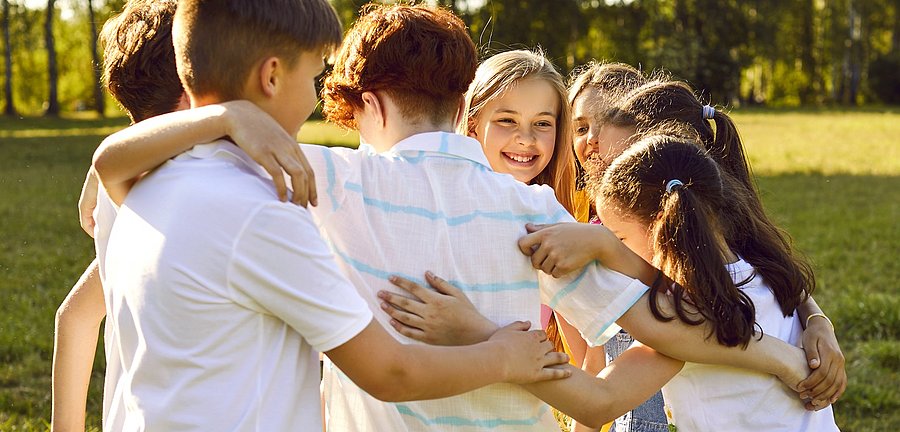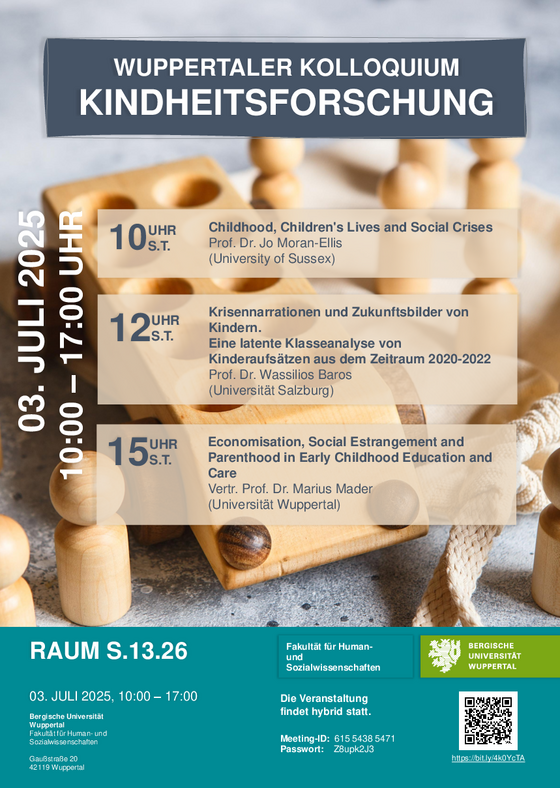Wuppertal Childhood Research Day
International perspectives on childhood and social crises

Photo Colourbox

Click on the poster: Larger version
The event will take place on Thursday, 3 July, from 10 a.m. to 5 p.m. on the Grifflenberg campus (Building S, Room S.13.26). Registration is not required. Participation via Zoom is also possible (link below).
The programme includes three academic lectures focusing on different aspects of childhood, educational institutions and social change.
- Prof Moran-Ellis (University of Sussex) will kick off the programme at 10 a.m. with her lecture "Childhood, Children's Lives and Social Crises". The internationally renowned sociologist will discuss how children experience social crises and which methodological and theoretical approaches are necessary to understand childhood under changing social and political conditions with the perspective of a good life for all children and adults.
- At 12 noon, Prof Wassilios Baros (University of Salzburg) will speak about "Crisis narratives and children's images of the future. A latent class analysis of children's essays from the period 2020-2022". Prof. Baros analyses written children's statements from the Corona period and shows how differently and collectively children perceive, interpret and (can) productively process crises.
- Finally, deputy professor Marius Mader (University of Wuppertal) will address the topic of 'Economisation, Social Estrangement and Parenthood in Early Childhood Education and Care'. The lecture will look at the consequences for parents and children when early childhood education and care is organised in a market-like manner.
Click here to participate online
Meeting ID: 615 5438 5471
Password: Z8upk2J3
The research centre "Kindheiten. Societies"
The Research Centre was established in 2011 at the University of Wuppertal as a central location for new interdisciplinary childhood research with the aim of doing justice to the diversity of children's life situations and theoretical approaches. Against the backdrop of the accentuation of children as social actors and the resulting consequences for child policy and child rights, the scientists involved in the research centre are particularly concerned with questions about the heterogeneous living environments of children, their development opportunities and the conditions under which they grow up.
